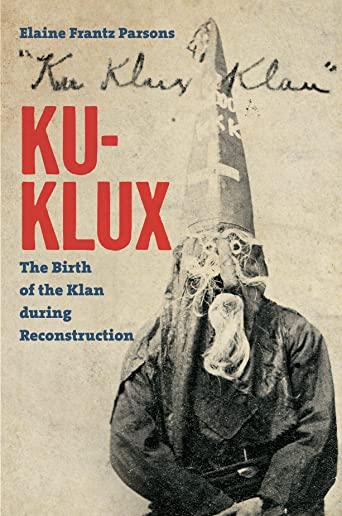
description
1The first comprehensive examination of the nineteenth-century Ku Klux Klan since the 1970s, Ku-Klux pinpoints the group's rise with startling acuity. Historians have traced the origins of the Klan to Pulaski, Tennessee, in 1866, but the details behind the group's emergence have long remained shadowy. By parsing the earliest descriptions of the Klan, Elaine Frantz Parsons reveals that it was only as reports of the Tennessee Klan's mysterious and menacing activities began circulating in northern newspapers that whites enthusiastically formed their own Klan groups throughout the South. The spread of the Klan was thus intimately connected with the politics and mass media of the North.
Shedding new light on the ideas that motivated the Klan, Parsons explores Klansmen's appropriation of images and language from northern urban forms such as minstrelsy, burlesque, and business culture. While the Klan sought to retain the prewar racial order, the figure of the Ku-Klux became a joint creation of northern popular cultural entrepreneurs and southern whites seeking, perversely and violently, to modernize the South. Innovative and packed with fresh insight, Parsons' book offers the definitive account of the rise of the Ku Klux Klan during Reconstruction.
Shedding new light on the ideas that motivated the Klan, Parsons explores Klansmen's appropriation of images and language from northern urban forms such as minstrelsy, burlesque, and business culture. While the Klan sought to retain the prewar racial order, the figure of the Ku-Klux became a joint creation of northern popular cultural entrepreneurs and southern whites seeking, perversely and violently, to modernize the South. Innovative and packed with fresh insight, Parsons' book offers the definitive account of the rise of the Ku Klux Klan during Reconstruction.
member goods
No member items were found under this heading.
listens & views

MUSIC FOR PIANO WITH MAGNETIC ...
by LUCIER,ALVIN / WESLEYAN UNIV GAMELAN ENSEMBLE
COMPACT DISCout of stock
$12.99

LEGEND OF THE INVISIBLE CITY ...
by RIMSKY-KORSAKOV / OKHOTNIKOV / MARUSIN / GORCHAKOV
COMPACT DISCout of stock
$22.49
Return Policy
All sales are final
Shipping
No special shipping considerations available.
Shipping fees determined at checkout.





